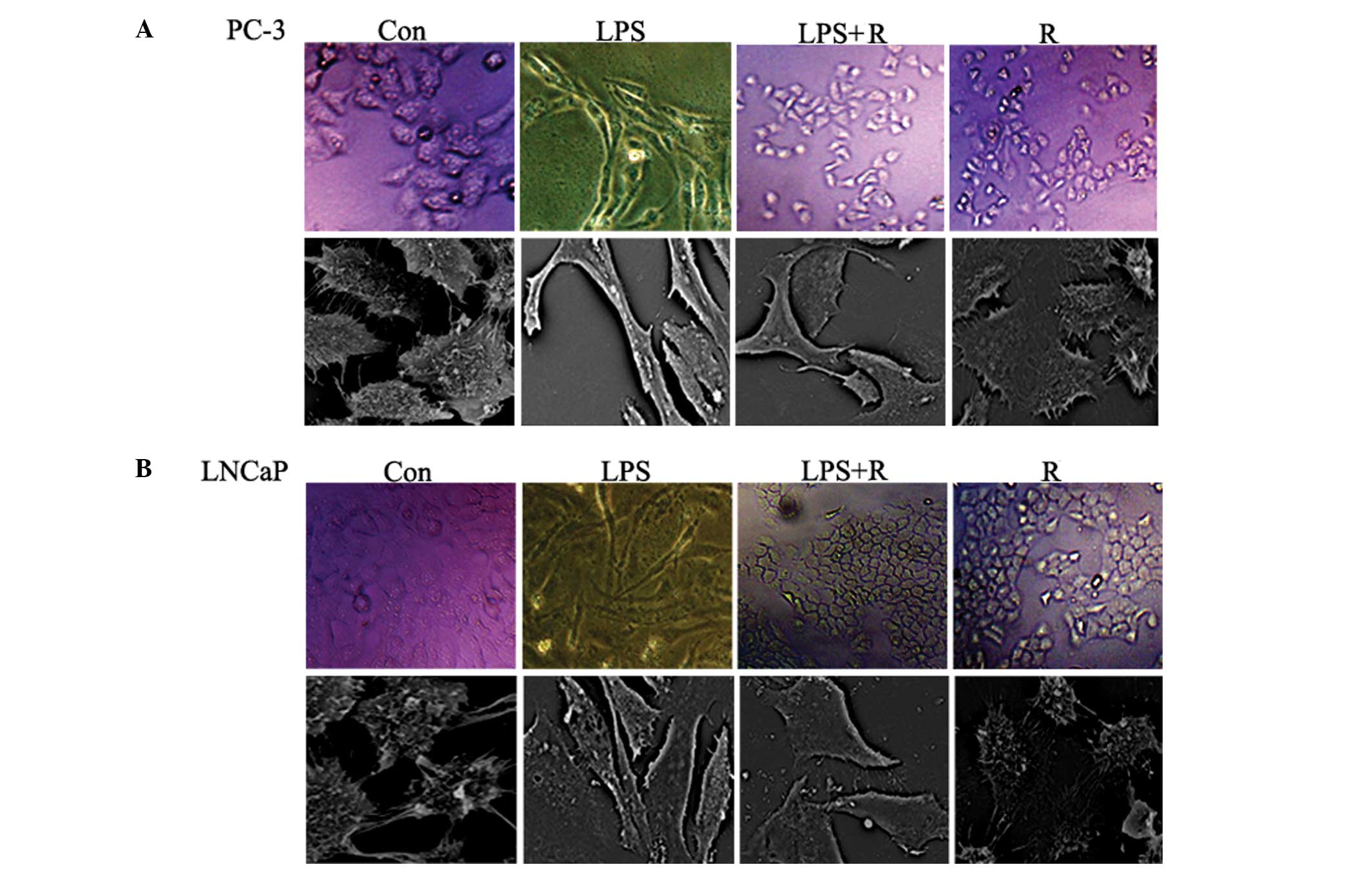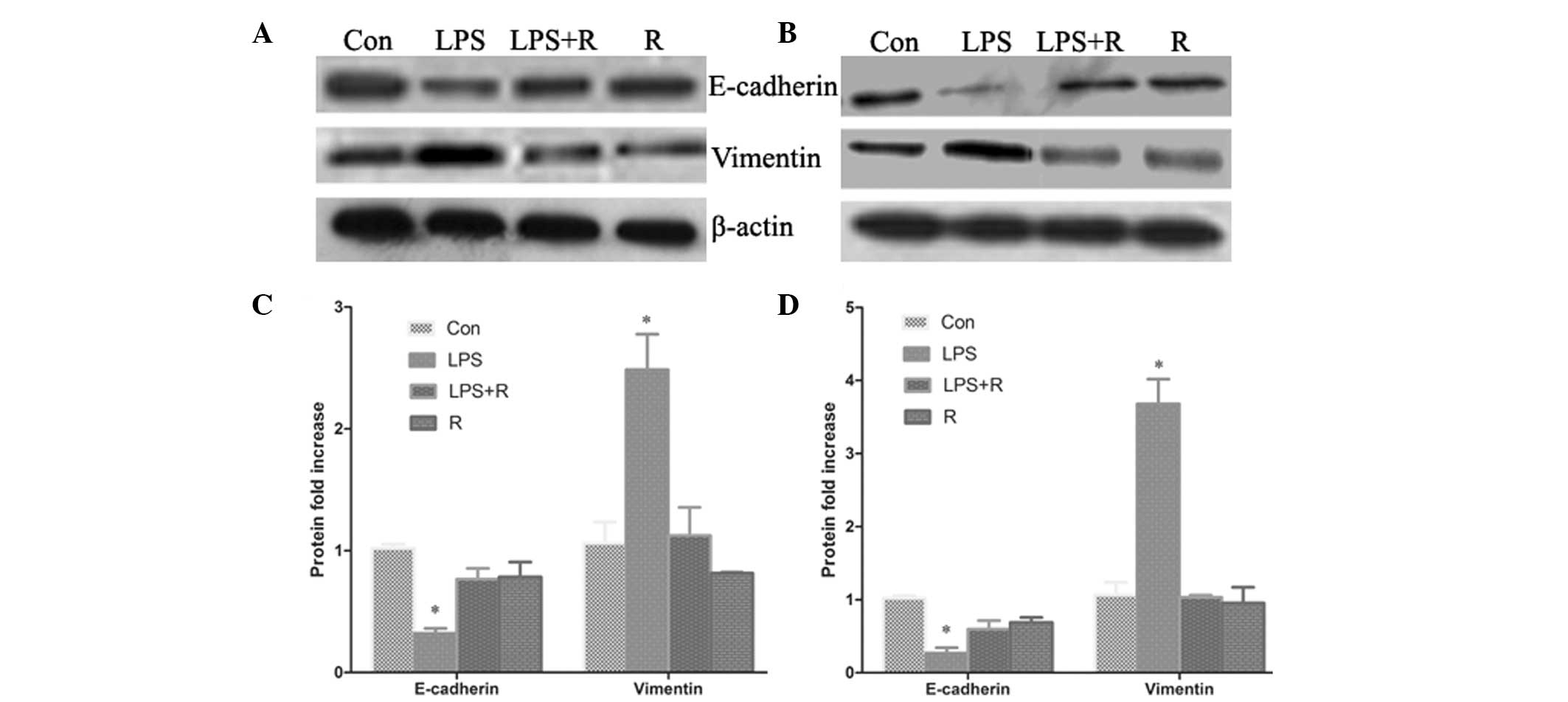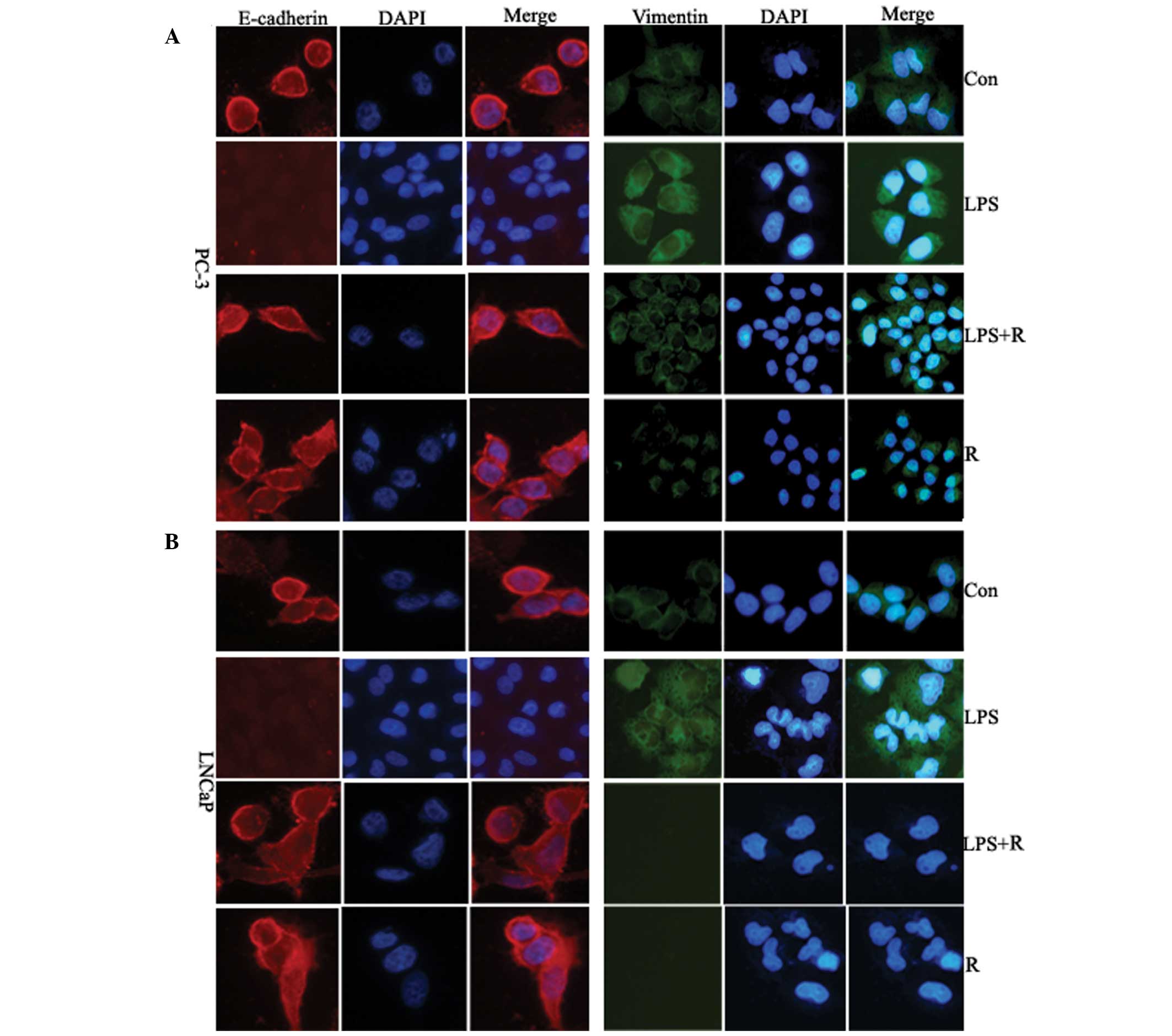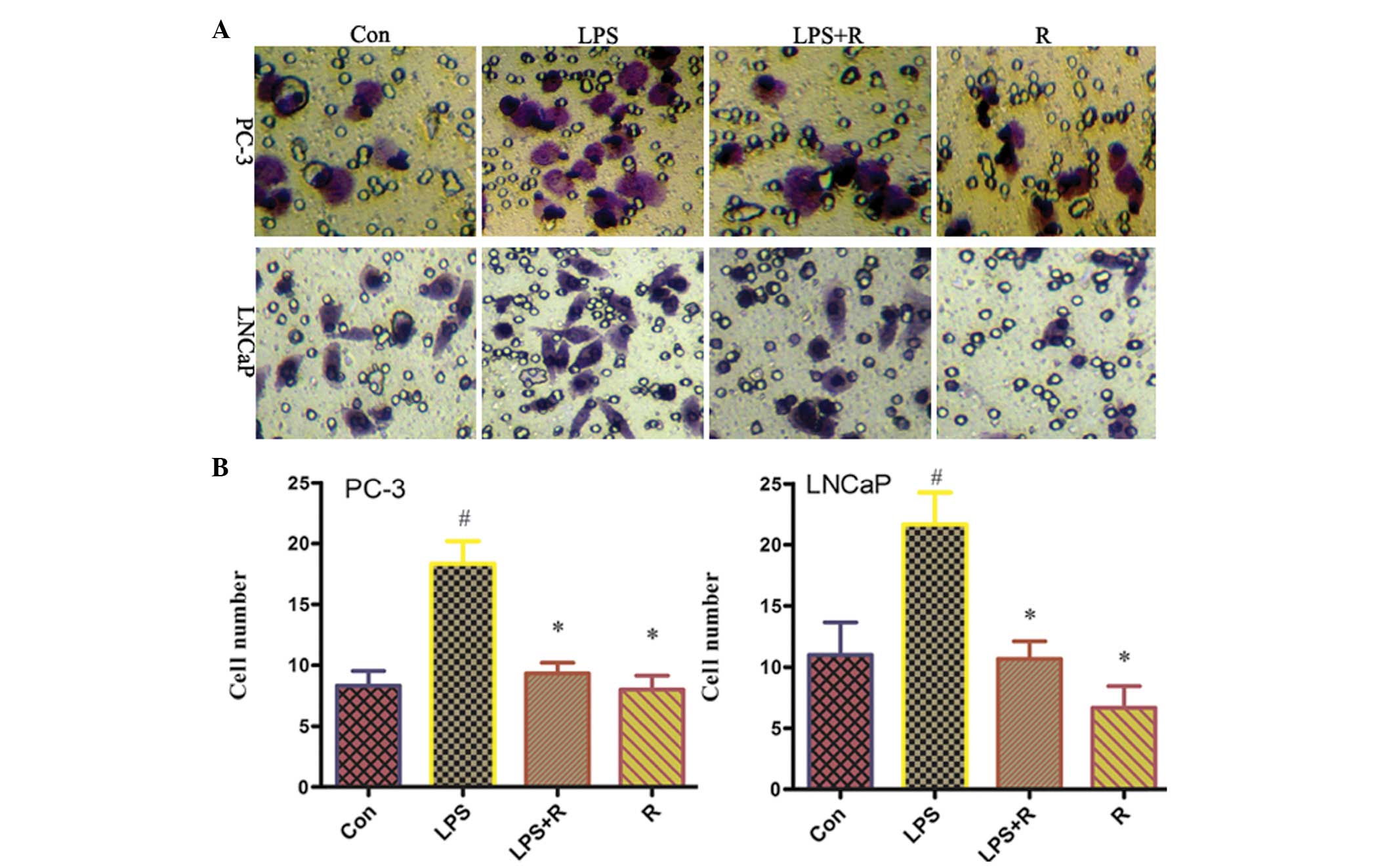|
1
|
Snyder A, Tepper JE and Slovin SF:
Perspectives on immunotherapy in prostate cancer and solid tumors:
where is the future? Semin Oncol. 40:347–360. 2013. View Article : Google Scholar
|
|
2
|
Sandhu GS, Nepple KG, Tanagho YS and
Andriole GL: Prostate cancer chemoprevention. Semin Oncol.
40:276–285. 2013. View Article : Google Scholar : PubMed/NCBI
|
|
3
|
Bhavsar T, McCue P and Birbe R: Molecular
diagnosis of prostate cancer: are we up to age? Semin Oncol.
40:259–275. 2013. View Article : Google Scholar
|
|
4
|
Franco-Chuaire ML, Magda Carolina CS and
Chuaire-Noack L: Epithelial-mesenchymal transition (EMT):
principles and clinical impact in cancer therapy. Invest Clin.
54:186–205. 2013.
|
|
5
|
De Craene B and Berx G: Regulatory
networks defining EMT during cancer initiation and progression. Nat
Rev Cancer. 13:97–110. 2013.PubMed/NCBI
|
|
6
|
Wu Q, Hou X, Xia J, et al: Emerging roles
of PDGF-D in EMT progression during tumorigenesis. Cancer Treat
Rev. 39:640–646. 2013. View Article : Google Scholar : PubMed/NCBI
|
|
7
|
Evdokimova V, Tognon CE and Sorensen PH:
On translational regulation and EMT. Semin Cancer Biol. 22:437–445.
2012. View Article : Google Scholar : PubMed/NCBI
|
|
8
|
Tiwari N, Gheldof A, Tatari M and
Christofori G: EMT as the ultimate survival mechanism of cancer
cells. Semin Cancer Biol. 22:194–207. 2012. View Article : Google Scholar : PubMed/NCBI
|
|
9
|
Hance MW, Dole K, Gopal U, et al: Secreted
Hsp90 is a novel regulator of the epithelial to mesenchymal
transition (EMT) in prostate cancer. J Biol Chem. 287:37732–37744.
2012. View Article : Google Scholar : PubMed/NCBI
|
|
10
|
Lu T, Lin WJ, Izumi K, et al: Targeting
androgen receptor to suppress macrophage-induced EMT and benign
prostatic hyperplasia (BPH) development. Mol Endocrinol.
26:1707–1715. 2012. View Article : Google Scholar : PubMed/NCBI
|
|
11
|
Clyne M: Prostate cancer: androgen
deprivation causes EMT in the prostate. Nat Rev Urol. 9:42012.
View Article : Google Scholar : PubMed/NCBI
|
|
12
|
Fryer RA, Galustian C, Dalgleish AG and
Dalgelish AG: Recent advances and developments in treatment
strategies against pancreatic cancer. Curr Clin Pharmacol.
4:102–112. 2009. View Article : Google Scholar
|
|
13
|
Surh YJ: Cancer chemoprevention with
dietary phytochemicals. Nat Rev Cancer. 3:768–780. 2003. View Article : Google Scholar : PubMed/NCBI
|
|
14
|
Hasan MM, Yun HK, Kwak EJ and Baek KH:
Preparation of resveratrol-enriched grape juice from
ultrasonication treated grape fruits. Ultrason Sonochem.
21:729–734. 2014. View Article : Google Scholar
|
|
15
|
Pollack RM and Crandall JP: Resveratrol:
therapeutic potential for improving cardiometabolic health. Am J
Hypertens. Sep 11–2013.(Epub ahead of print).
|
|
16
|
Ren Z, Wang L and Cui J: Resveratrol
inhibits NF-kB signaling through suppression of p65 and IkappaB
kinase activities. Pharmazie. 68:689–94. 2013.
|
|
17
|
Whitlock NC and Baek SJ: The anticancer
effects of resveratrol: modulation of transcription factors. Nutr
Cancer. 64:493–502. 2012. View Article : Google Scholar : PubMed/NCBI
|
|
18
|
Aluyen JK, Ton QN, Tran T, Yang AE,
Gottlieb HB and Bellanger RA: Resveratrol: potential as anticancer
agent. J Diet Suppl. 9:45–56. 2012. View Article : Google Scholar : PubMed/NCBI
|
|
19
|
Vang O, Ahmad N, Baile CA, et al: What is
new for an old molecule? Systematic review and recommendations on
the use of resveratrol. PLoS One. 6:e198812011. View Article : Google Scholar : PubMed/NCBI
|
|
20
|
Chen MC, Chang WW, Kuan YD, Lin ST, Hsu HC
and Lee CH: Resveratrol inhibits LPS-induced epithelial-mesenchymal
transition in mouse melanoma model. Innate Immun. 18:685–693. 2012.
View Article : Google Scholar : PubMed/NCBI
|
|
21
|
Colas E, Pedrola N, Devis L, et al: The
EMT signaling pathways in endometrial carcinoma. Clin Transl Oncol.
14:715–720. 2012. View Article : Google Scholar : PubMed/NCBI
|
|
22
|
Liu DZ, Wang YS and Ji AG: The role of
TGF-beta in the EMT of tumor cells. Sheng Li Ke Xue Jin Zhan.
42:463–466. 2011.(In Chinese).
|
|
23
|
Ruat M, Angot E and Traiffort E: Shh
signal and its functional roles in normal and diseased brain. Med
Sci (Paris). 27:979–985. 2011.(In French).
|
|
24
|
Shankar S, Nall D, Tang SN, et al:
Resveratrol inhibits pancreatic cancer stem cell characteristics in
human and KrasG12D transgenic mice by inhibiting pluripotency
maintaining factors and epithelial-mesenchymal transition. PLoS
One. 6:e165302011. View Article : Google Scholar
|
|
25
|
Vergara D, Valente CM, Tinelli A, et al:
Resveratrol inhibits the epidermal growth factor-induced epithelial
mesenchymal transition in MCF-7 cells. Cancer Lett. 310:1–8. 2011.
View Article : Google Scholar : PubMed/NCBI
|
|
26
|
Li W, Ma J and Ma Q: Resveratrol inhibits
the epithelial-mesenchymal transition of pancreatic cancer cells
via suppression of the PI-3K/Akt/NF-κB pathway. Curr Med Chem.
20:4185–4194. 2013.PubMed/NCBI
|
|
27
|
Wang H, Zhang H, Tang L, et al:
Resveratrol inhibits TGF-β1-induced epithelial-to-mesenchymal
transition and suppresses lung cancer invasion and metastasis.
Toxicology. 303:139–146. 2013.
|
|
28
|
Chen MC, Chang WW, Kuan YD, Lin ST, Hsu HC
and Lee CH: Resveratrol inhibits LPS-induced epithelial-mesenchymal
transition in mouse melanoma model. Innate Immun. 18:685–693. 2012.
View Article : Google Scholar : PubMed/NCBI
|
|
29
|
Vaillant C and Monard D: SHH pathway and
cerebellar development. Cerebellum. 8:291–301. 2009. View Article : Google Scholar : PubMed/NCBI
|
|
30
|
Panman L and Zeller R: Patterning the limb
before and after SHH signalling. J Anat. 202:3–12. 2003. View Article : Google Scholar : PubMed/NCBI
|
|
31
|
Xu QR, Zheng X, Zan XF, Yao YM, Yang W and
Liu QG: Gli1 expression and its relationship with the expression of
Shh, Vimentin and E-cadherin in human hepatocellular carcinoma. Xi
Bao Yu Fen Zi Mian Yi Xue Za Zhi. 28:536–539. 2012.(In
Chinese).
|





















